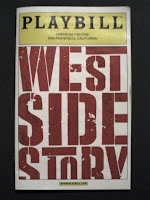If you are looking for new listening material for your commute, or simply your edification, below are some of my favorite podcasts (all available for free on iTunes):
This is a great podcast about (mostly) contemporary books. Begun in 2008 by two sales reps for Random House, the format usually consists of a short discussion about a current events topic or theme involving books and/or publishing and then a reading recommendation from each of the hosts.
One thing I love about this podcast is that they simply give recommendations of books that have caught their attention (not necessarily by Random House). They don’t do reviews or give anything away, but rather tell you just enough for you to decide whether you might like it. This podcast is how I discovered
The Book Thief,
The Lost City of Z, and
Mary Reilly.
I am a longtime fan of this podcast where the host reads classic short stories and novellas, most often adventure tales and classic horror (and, unfortunately, the Jeeves stories of P. G. Wodehouse). The episodes vary greatly in length, but most run 45 to 60 minutes. Occasionally, he will produce multiple episodes of longer works, most recently The Turn of the Screw. His accent can be a bit off-putting, but it grows on you. Unfortunately, only his most recent episodes are available for free, but, if you like his style or story selections, all of them are available for purchase on his website.
This podcast out of the U.K. presents short interviews (15 to 20 minutes) with guest philosophers focusing on a wide variety of very specific philosophical writings, questions, or issues: Plato’s Cave, Hobbes on the State, atheism, medical consent, and so on. Over 100 episodes are available on iTunes and each topic is independent from the next, so feel free to listen to whichever title looks appealing. Philosophy has always been difficult for me to get a handle on and the specificity of the topics really helps me with that.
This series is a must for any fan of film noir. Both professors, not only do Clute and Edwards really know what they are talking about, but they are clearly very passionate about their work. There are a total of 50 episodes, almost all focusing on a single film and generally running 30 to 35 minutes. There are a couple of instances where they pair a classic film with something more contemporary (for example, The Big Sleep and The Big Lebowski) and these run over an hour. Like a lecture course, they sometimes reference earlier episodes and discussions, so I highly recommend listening in some sort of vague chronological order. If you don’t really know the film well, I also recommend Netflixing before listening.

This podcast ran from 2006 to 2008 and has almost 50 episodes. I don’t love the husband and wife team that hosts this series, but I love the concept and structure of looking at the entire career of one director in each episode. I also appreciate the incredible amount of viewing it must have required to put each episode together. The choice of directors runs the gamut from classic (Frank Capra, Ingmar Bergman, Michael Powell) to contemporary (Peter Jackson, Mira Nair, Steven Soderburgh) to iconic (Alfred Hitchcock, Woody Allen, John Hughes). Perhaps because of the time involved, the Johnsons, along with a third host, now host a new series that examines a single film from the angle of its theological, philosophical, and thematic content:
Watching Theology is ongoing and has over 30 episodes to date including those on
Pulp Fiction,
Children of Men, and
Fight Club.
12 Byzantine Rulers: The History of the Byzantine Empire by Lars Brownworth
In just 17 episodes (most 25 to 30 minutes long), Brownworth manages to condense over 1000 years of history into a fascinating narrative by focusing on some of the key leaders of the Byzantine Empire. While the original series is long over, his current effort is
Norman Centuries, which tells the history of the Normans in England, France, and Italy. To date, there are 10 episodes.
If you are looking to get out of debt, this podcast is a great motivator, particularly on Fridays, when people call in to shout “I’m debt free!” and tell their own personal get-out-of-debt stories. But, fair warning, he thinks you should be sacrificing more to make it happen and his plan is not easy. He also has strong Christian beliefs that he is not afraid to talk about; however, he is pretty good about keeping the show money and debt focused. As someone who used to work in investment consulting, I didn’t really need most of his financial advice (which is extremely sound), but his show played an important role in helping me stick to the strict budget that allowed me to pay off my graduate school loans much earlier than I would have otherwise.
Finally, for help in other areas of your life, I also recommend the “Quick and Dirty Tips” podcasts. This is a group of self-help podcasts each led by a different specialist and focusing on a particular area: legal issues, fitness and health, money matters, etiquette, grammar, etc. The episodes are very short, usually 5 to 10 minutes—which is extremely annoying given how podcasts work on iPods (but I digress). My favorite series are Get-It-Done Guy, who covers managing and organizing your work life, and The Nutrition Diva, who examines such vital questions as “Is high-fructose corn syrup really as bad as they say?” and “Should you spend more for natural gourmet salt?”
Do you listen to podcasts? If so, what are your favorites and why? I have a 30-minute walking commute so I'm always looking for new listening material.































